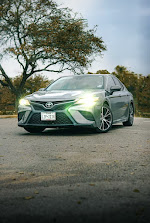It’s looking more likely than ever that Apple AAPL -0.42% is getting into the car business. Rumors of “Project Titan ” have been swirling for months, including reports of a top-secret research lab staffed with hundreds of automotive engineers and even speculation that Apple is gearing up for automotive production in Ireland, where it already has a big presence.
Apple executive Jeff Williams dropped another strong hint last week at Re/Code’s influential Code Conference. “The car is the ultimate mobile device, isn’t it?”
http://lindaikeji.blogspot.com/Williams said in response to a question about what industries the company is looking at. ”We explore all kinds of categories. We’ll certainly continue to look at those and evaluate where we can make a huge difference.”
Does anyone doubt that Apple could make a huge difference in the auto industry? Not me. Imagine if Apple developed the Volkswagen Beetle for the 21st century — a true people’s car, not a pricey Tesla, one that’s simple and
It’s not such a stretch. Apple has done it many times before with other products (Apple II, Mac, iPod, iPad, iPhone and now, maybe, the iWatch).
But building an entire vehicle is different, isn’t it? The car business has largely avoided the kind of technological disruption that has transformed other industries — not because it isn’t ripe for reinvention, but because the traditional barriers to entry are so high. It’s a heavily regulated and capital-intensive industry whose complexity is often underestimated by outsiders. The list of failures is long, including Preston Tucker, John DeLorean, Malcolm Bricklin and Henrik Fisker. The jury is still out on Elon Musk’s Tesla Motors TSLA -0.43%, which has yet to turn a profit.
But if any outside challenger it to succeed, it is Apple. Here’s why:
1. Apple has the money.
Next to the oil business, car-making is the most capital-intensive
business in the world. The industry spent an astonishing $133 billion on
capex and R&D last year. Mounting safety and emissions regulations,
along with advances in technology, keep driving costs higher. GM alone
spent $14.4 billion on new products, factories and technologies in 2014,
and it will spend $2 billion more than that this year. That kind of
money is no problem for Apple, which has the world’s largest war chest
at nearly $200 billion. It could easily match GM’s spending and hardly
break a sweat.
3. Apple wouldn’t have to build the car at all. Just as it outsources production of iPhones and computers to companies like Foxconn and Samsung, it would likely hire a contract manufacturer like Austria’s Magna Steyr or Finland’s Valmet Automotive to build the vehicles. Apple would handle the design, engineering and marketing – all things that it’s exceedingly good at. Supply chain management should be easy, too. Automotive suppliers that have been pushed to the brink by major carmakers would be more than happy to work with a flush new entrant.
4. Apple has no legacy issues. It doesn’t have old factories that need retooling. Nor does it have expensive unions, tired brands or stubborn management fiefdoms to support. Chief Executive Tim Cook doesn’t have to spend tens of thousands of hours turning around Apple’s culture because unlike General Motors, it’s not broken.
5. Tesla has shown the way. Granted, Tesla loses money on every car. But Musk has launched the first automotive brand in decades that has punctured the public consciousness. Just imagine what he could do with Apple’s resources.
6. With the name Apple comes credibility. Next to bending metal, branding and marketing remain incredibly expensive and important in the car business. But Apple’s brand — far and away the world’s most valuable by Forbes accounting — gives them extraordinary power over established automotive brands. GM and Ford Motor are spending tens of millions of dollars to prove they’re cool. Apple already is cool. That’s why carmakers are racing to incorporate Apple’s CarPlay user experience in their future models.
7. People would stretch to buy a car from Apple. They already pay premium prices for Apple computers, iPhones and iPads. If they could replicate the Apple user experience in their car, they’d probably find a way to justify spending more on a vehicle, too.
8. Apple would win the Talent War.
They can pick off whomever they want at will. The company has already
been scooping up auto industry veterans and is even reportedly offering
$250,000 signing bonuses to woo Tesla employees.
9. Apple only needs one great car.
It doesn’t have to worry about selling to every market segment,
protecting its flanks on pickups, rolling out unprofitable “compliance
cars” or developing a luxury strategy. That focus would give them a huge
advantage.
0. Apple can take risks others can’t. If Apple tries
to make a car, and sinks, say, $20 billion into the effort, it would be
the largest budget ever to develop a new vehicle. (By comparison,
Cadillac plans to spend $12 billion to develop eight new models by 2020
and two more in the next decade.) Yet the experiment would be only about
10% of Apple’s total cash. So Apple can aim for a moonshot – a
self-driving electric car, perhaps, that intuitively manages all of
life’s details — because failure is an option.
My bet is no. The auto industry’s slim profit margins, typically
under 10 percent, aren’t attractive enough to convince a tech giant like
Apple, which is used to margins of 35 percent to 40 percent, to go all
in.But Apple knows that most of a car’s profit comes from the software and electronics, not from crunching metal. Apple probably is indeed developing a car, but not because it wants to sell cars on the mass market. Instead, it will show automakers what the car of the future should be like.
Then watch for the rest of the industry to line up at its door.
photo of apple car
Tags:
Car Talk
